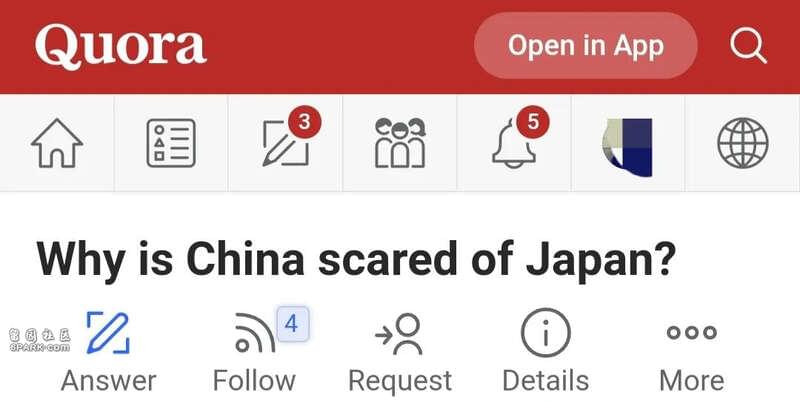
问题:为什么中国会害怕日本?
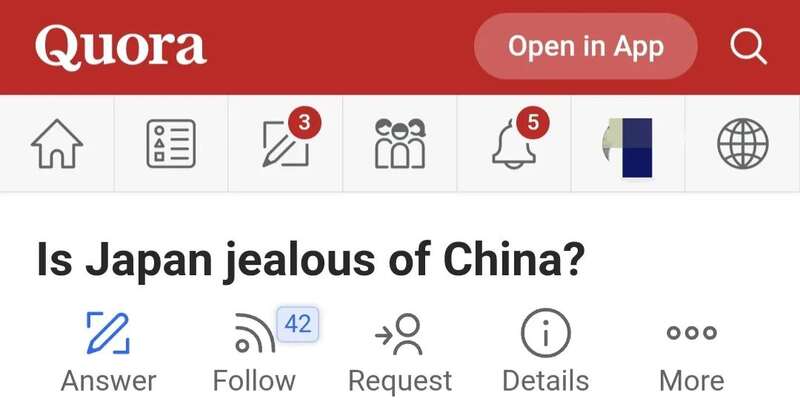 问题
问题
印度尼西亚网友苏加亚的回答
Since I began to comprehensively study and pay attention to China us, China Japan and US Japan relations, my views on Japan have changed greatly.
自从我开始全面地研究和关注中美、中日和美日关系以来,我对日本的看法发生了很大变化。
Japan has no right to launch any war. They are the losers of World War II and are therefore controlled by the United States. The Japanese constitution forbids them to have an army. Like South Korea, its defense right is firmly in the hands of the United States. The existing self defense forces are only used for internal defense purposes. Their factories are also restricted from producing offensive war equipment. Why would a Security Council power fear a vassal state without sovereignty?
首先,日本无权发动任何一场战争,他们是二战的输家,并因此受美国控制。日本宪法禁止他们拥有军队,和韩国一样,其防御权牢牢地掌握在美国手中,现有的自卫队只用于内部防御目的,他们的工厂也被限制不能生产进攻性战争装备。一个安理会大国为什么会害怕一个没有主权的附庸国?
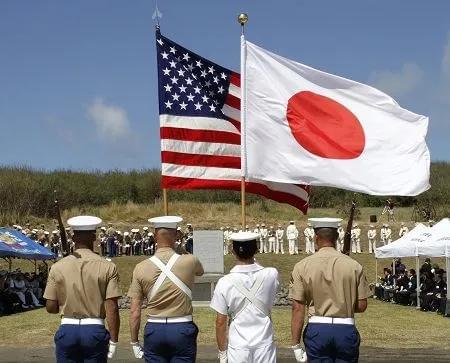
Think with a normal rather than emotional mind: how can a country with only one tenth of China's population win a war with China, which has a population of 1.4 billion and is equipped with the latest technology?
用正常而非情绪化的头脑思考:一个只有中国十分之一人口的国家,怎么能同拥有14亿人口、装备有最新技术的中国打赢一场战争呢?
Almost everyone is familiar with how the Japanese Empire invaded China without any reason during the period from 1894 to 1945 under the pretext of fabricating, expanding Japan's sphere of influence in China, treating the Chinese people as inferior races and committing satanic acts against civilians.
几乎每个人都对日本帝国如何在1894年至1945年期间无缘无故地以捏造的借口不断入侵中国,不断扩大日本在中国的势力范围、将中国人视为劣等种族以及对平民犯下撒旦恶魔一样的行径颇为熟悉。
I once found in historical materials that a Japanese officer was in a meditative posture behind a square composed of about 50 Chinese heads. Each head stood quietly on the ground without a sound. However, I heard the cry from my ears, and the fascist devil was silent behind.
我曾在历史资料中发现一名日本军官在一个由大约50个中国人头组成的正方形后面摆着冥想的姿势,每个人头静静地矗立在地上,毫无声息,我却从耳畔听到了呐喊声,而法西斯恶魔就在后边默默入定。
It is estimated that more than ten million Chinese were killed by the Japanese between 1937 and 1945. However, of the hundreds of thousands of Japanese officers, only about 900 were executed for war crimes.
据估计,1937年至1945年间被日本人杀害的中国人数量何止千万,然而,在几十万名日本军官中,只有大约900名因战争罪被处决。
To be fair, China has always been very good to Japan with a benevolent and righteous mind. To be honest, even after Japan's defeat in the Second World War, China tolerated many crimes after the Tokyo trial.
公平地说,中国秉持着仁义的胸怀,对日本一直很好。老实说,即使在日本在第二次世界大战中战败之后,经过东京审判,中国也容忍了许多罪行。
But after the founding of new China, Japan followed the example of its puppet master, the United States, and recognized that the Taiwan authorities were China's orthodoxy, not the people's Republic of China, which had more than 99.9 percent of the population and 99.6 percent of the territory. Japan did not establish diplomatic relations with China until 1972, so from the very beginning it wasted a golden opportunity to apologize, show respect, show that it had changed, and turn a new page with China.
可在新中国成立后,日本效仿其傀儡主人美国,承认台湾当局是中国正统,而不是拥有99.9%以上人口和99.6%领土的中华人民共和国。日本直到1972年才和中国建立外交关系,所以从一开始它就浪费了这样一个黄金机会:道歉、表示尊重、表明它已经改变,并与中国翻开新的一页。
Japan refuses to acknowledge its terrible atrocities against China in any meaningful way. Japanese textbooks still simply mention them. The remains of thousands of recognized war criminals are enshrined in the Yasukuni Shrine, and Japan's top leaders (prime ministers) continue to pay homage to the Yasukuni Shrine. The Japanese are still one of the most Anti China ethnic groups on earth. By 2020, 86% of the people have a negative view of China, and only 9% have a positive view. Since the imperial era began after the sun rose, there has been little change, which is the norm for the Japanese.
日本拒绝以任何有意义的方式承认其对中国的可怕暴行,日本教科书仍然只是简单地提到它们,靖国神社供奉着数千名公认战犯的遗体,日本最高级别的领导人(首相)继续参拜靖国神社。日本人仍然是地球上最反华的民族之一,截至2020年,86%的人对中国持负面看法,只有9%的人持正面看法。自太阳升起后的帝国时代开启以来,变化不大,这对日本人来说才是常态。
But even so, in the past decade, Japan's Anti China level has been shocking. Japan has now joined the group of four (in fact, the group of four is the idea of Shinzo Abe in 2007) and the inter parliamentary China Union, expanded its relations with the Taiwan authorities, had an affair with the Dalai Lama, made reckless comments by Tibet, sent warships to participate in the "freedom of navigation" exercise held by the United States near the Chinese coast, and strengthened Anti China remarks when bowing to the puppet master of the United States. This makes me believe that, Japan's hostility has deeper causes than the tension between China and Japan in the past several thousand years.
但即便如此,在过去十年中,日本的反华程度令人震惊。日本现在加入了四国集团(事实上,四国集团是安倍晋三在2007年的想法)和各国议会中国联盟,扩大了与台湾当局的关系,私通达赖,妄加评议西藏,派遣军舰参加了美国在中国海岸附近举行的“航行自由”演习,并在向美国傀儡主人鞠躬时加强了反华言论,这让我相信,日本的敌意比过去几千年历史上的中日紧张局势有更深层的原因。
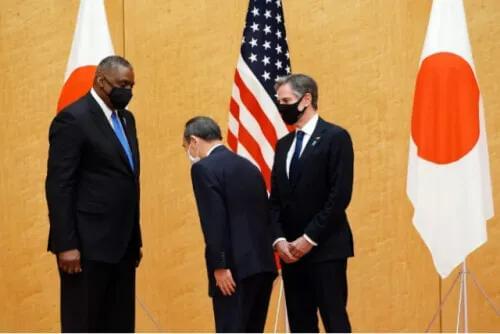
What is the reason?
究竟是什么原因呢?
• it may be jealousy and helplessness. China is in the situation of Japan in the 1980s, but it will certainly not compromise and surrender in the trade war with the United States, nor will it sign the suicide Plaza Agreement.
•可能是嫉妒和无奈。中国正处于日本80年代时的境地,但它肯定不会在与美国的贸易战中妥协投降,也不会签署自杀式的广场协议。
• this may be Americanized stupidity. Many Japanese regard their country as Hawaii. I mean, the United States has conducted two nuclear tests in this country, but today 67% of Japanese still appreciate the United States. "Japan is one of the most pro american countries in the world."
•这可能是美国化的愚蠢。许多日本人,都将自己的国家当作是夏威夷。我的意思是,美国在这个国家进行了两次核试验,但今天67%的日本人对美国仍持赞赏态度。“日本是世界上最亲美的国家之一。”
The Japanese are not only the most Americanized Asians after the Filipinos, but also have 23 US military bases on the land (partly supported by Japanese taxes). The US president can impose tariffs on me, threaten to expel his illegal immigrants to my country, or ask for another 8billion dollars to maintain the above military bases, but still worship him. The Japanese think I am basically an American, but I am not an American citizen. So I should hate what America hates.
日本人不仅是继菲律宾人之后美国化程度最高的亚洲人,而且土地上还有23个美国军事基地(部分由日本的税收支持),美国总统可以对我征收关税,威胁要把他的非法移民驱逐到我的国家,或者要求再提供80亿美元来维护上述军事基地,却仍然崇拜他。日本人认为我基本上已经是美国人了,只是不是美国公民。所以我理所应当讨厌美国讨厌的东西。
• it can be attributed to the arrogance of Western democracy. They feel that even under this democratic rule, Japan will face the same problem in 2021 as in 1991 (that is, 30 years of stagnation). At least I have "freedom", no matter what it means. I can elect a prime minister every four years, so I am free. Those who cannot vote are barbarians who need light. They have been brainwashed by democracy under American hegemony.
•可能源于西方式民主的傲慢。他们觉得,即使在这种民主的统治下,日本在2021年面临着与1991年相同的问题(即30年的停滞),至少我有“自由”,不管这意味着什么。我可以每四年选举一次首相,所以我是自由的,那些不能投票的人是需要光明的野蛮人。他们已经被美式霸权下的民主洗脑了。
Once, as an evil empire, Japan could not defeat China, nor did it eventually surpass the United States as a potential superpower in the 1970s and 1980s... But Japan will not give up, but will continue to attack China in any way, even if it is the lackey of the United States. For China, it is no longer a threat, so it has decided to become a disgusting pest.
曾经作为一个邪恶帝国,日本无法击败中国,也没有在70年代和80年代最终超越美国成为一个潜在的超级大国……但日本不会就此罢休,而是会继续以任何方式攻击中国,即使它是美国的走狗。对中国来说,它不再是一种威胁,所以它决定成为一种令人厌恶的害虫。

意大利网友伊斯梅尔•伯斯莫瑞的回答
People tend to answer this question from the perspective of pure ideology, because the influence of Japanese culture makes Japan look perfect. Ancient Japan must have envied China; Modern Japan seems completely indifferent to China, because they still believe in their own advantages; I suspect that in the next 20-40 years, it will be difficult for them to go further under the shadow of China, and there will be obvious signs of jealousy again.
人们倾向于从纯意识形态的角度来回答这个问题,因为日本文化的影响使日本看起来很完美。古代日本肯定嫉妒中国;现代日本对中国显得完全漠不关心,因为他们仍然相信自己的优势;我怀疑在未来20-40年,他们将很难在中国的阴影下走得更远,再次出现明显的嫉妒迹象。
1) In history, Japan tried to be like China in all respects. Nara and Kyoto are basically the epitome of Medieval Chinese cities. However, since the Meiji Restoration, their object of worship has become the West.
1) 历史上,日本力图在各个方面都像中国一样。奈良和京都基本上是中世纪中国城市的缩影。然而,自明治维新以来,他们的崇拜对象变成了西方。
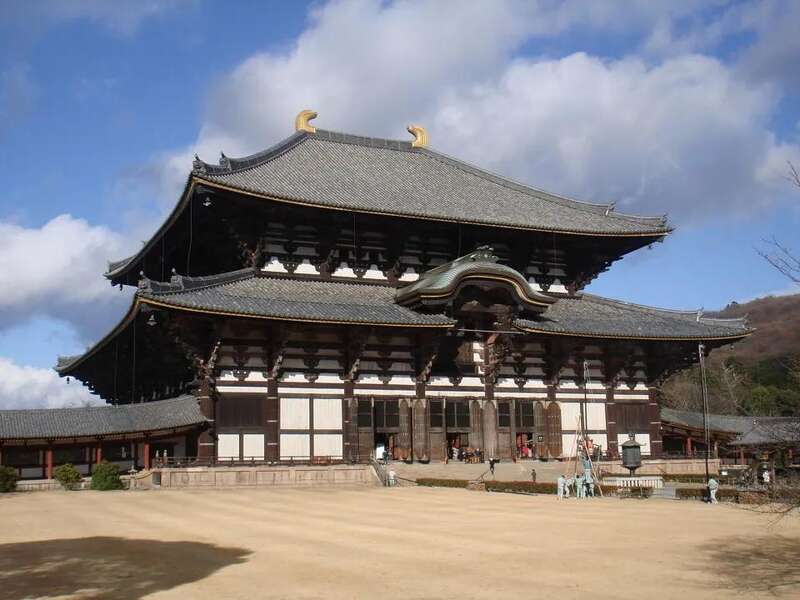
奈良
2) Economically, their middle class is steadily falling into poverty, and ordinary Japanese families have actually stopped spending. In 2019, their debt to GDP ratio was 236%. In 2016, the Bank of Japan adopted negative interest rates, which will one day reach a critical point. It is recommended to read Kenichi Ohmae's book on Japan's bleak economic prospects and the loss of hope among Japanese young people, "low desire society", all of which happened when China was still growing and helping other countries grow.
2) 在经济方面,他们的中产阶级正稳步陷入贫困,日本普通家庭实际上已经停止了支出。2019年,他们的债务与GDP之比为236%,2016年,日本央行就采用了负利率,总有一天会达到一个临界点。推荐阅读大前研一(Kenichi Ohmae)关于日本经济前景黯淡和日本年轻人失去希望的书,《低欲望社会》,所有这一切都是在中国仍在增长并帮助其他国家增长的时候发生的。
3) In terms of resources, Japan has always been strongly aware that it cannot be self-sufficient. This is a geographical talent problem, so they invaded China at the first opportunity.
3) 就资源而言,日本一直强烈地自我意识到不能自给自足,这是一个地理天赋问题,所以他们一有机会就入侵了中国。
4) As for the environment, since the 2011 earthquake, Japan has dumped millions of metric tons of radioactive water into the ocean every year. American and Canadian companies on the west coast were forced to continue selling radioactive seafood, and independent research on radiation levels in the Pacific was systematically suppressed. Who wants to live on a nuclear wasteland, let alone a wasteland that is destroying the entire ocean?
4) 关于环境,自2011年地震以来,日本每年向海洋倾倒数百万公吨放射性水。西海岸的美国和加拿大公司被迫继续销售放射性海产品,有关太平洋辐射水平的独立研究也被系统地压制。谁愿意生活在核荒原上,更不用说一个正在毁灭整个海洋的荒地了?

福岛核电站事故
5) Finally, government capacity. When the Fukushima earthquake and nuclear disaster occurred in 2011, the highest level government in Japan responded slowly and completely stagnated, which is in sharp contrast to China's response to the Wenchuan earthquake and the current coronavirus epidemic, or it is not comparable at all.
5) 最后,政府能力。当2011年福岛地震和核灾难发生时,日本最高级别的政府,响应缓慢,完全停滞不前,这与中国对汶川地震和当前冠状病毒疫情的反应形成鲜明对比,或者完全没有可比性。
In my opinion, China is regaining its position in the world. All her neighbors are still moving against the trend in developing relations with this giant. This is what I am puzzled about.
在我看来,中国正在重新夺回其在世界上的地位,她的所有邻国仍在发展与这个巨人的关系方面逆潮流而动,这是我感到疑惑的地方。

旅日网友山姆•金的回答
Interesting question. In the past few years living in Japan, I have noticed that the Japanese generally have a groundless and strange sense of superiority towards China. But now that you mention it, it may indeed be an inner jealousy.
有趣的问题。在日本生活的几年里,我注意到日本人对中国普遍存在着一种毫无根据、普遍奇怪的优越感。但是,现在你提到它,细想这可能确实是一种内心的嫉妒。
Most people here know nothing about their own history, let alone how much China has influenced the cultural evolution of Japan (taking their writing system as an example). Life here is generally quiet. Most people focus on their own work and family, and basically know nothing about the nature of some international political events. Basically, all their ideas were instilled directly into them by textbooks, the media and their superiors.
这里的大多数人都对自己的历史一无所知,更不用说中国对日本的文化进化有多大的影响了(以他们的书写系统为例),这里的生活总体上很平静,大多数人都专注于自己的工作和家庭,而对一些国际政治事件的性质判断基本一无所知。他们的所有观念基本上是教科书、媒体和上级直接灌输给他们的。
Japan envies China. Why? China has more resources than Japan, and many of them have not even been fully developed. China has a wide range of beautiful scenery, from extremely high mountains and huge plateaus to broad and magnificent rivers (such as the Three Gorges of the Yangtze River), to large deserts (Gobi and Taklimakan, to the lush subtropical valleys of Yunnan and Sichuan, to the beautiful scenery of Hunan, Sichuan and Guizhou (where many Western films, such as avatar, were filmed), extending from north to south to the east coast.
日本嫉妒中国。为什么?中国比日本拥有更多的资源,许多资源甚至还没有完全开发出来。中国拥有广袤的美景,从极高的山脉和巨大的高原到宽阔壮阔的河流(如长江三峡),再到大片的沙漠(戈壁、塔克拉玛干再到云南和四川郁郁葱葱的亚热带山谷,再到湖南、四川、贵州美丽的风景(在那里拍摄了许多西方电影,如《阿凡达》),从北到南一直延伸到东海岸。
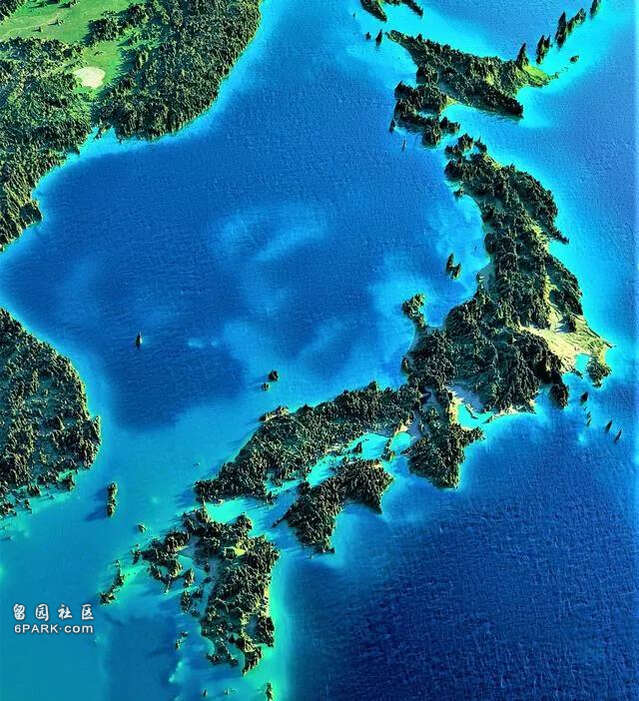 日本地形图
日本地形图China has a very rich history and culture, more than any other country, especially Japan. All Japanese culture, including some languages, comes from China. This includes folklore. Fairy tales, calligraphy, brush paintings, operas, musical instruments, religion (Japanese Shinto comes from Chinese Taoism) and philosophy.
中国有着非常丰富的历史和文化,比任何其他国家都要丰富,尤其是日本。日本的所有文化,包括部分语言都来自中国。这包括民间传说。童话、书法、毛笔画、歌剧、乐器、宗教(日本神道教来自中国道教)和哲学。
For some time, Japan was significantly ahead of China in modernization, weapons and military strength. But now the situation has reversed. China's bullet trains are faster than Japan's Shinkansen, and its railway network is the largest in the world, and it is still expanding. China has the world's first maglev train (between Shanghai Pudong International Airport and the city center).
有一段时间,日本在现代化、武器和军事实力方面大幅度领先于中国。但现在形势已经逆转。中国的子弹头列车比日本的新干线快,其铁路网络是世界上最大的,并且还在不断扩大。中国拥有世界上第一列磁悬浮列车(介于上海浦东国际机场和市中心之间)。
The most painful thing for Japan is that it was replaced by China as the second largest economy in terms of GDP. In 2010, Japanese Internet users almost collapsed, but as time went by, they became accustomed to it.
对日本来说,最痛苦的是,它被中国取代,成为GDP排名第二的经济体,2010年时,日本网民几乎崩溃,但随着时间流逝,他们也就习惯了。

